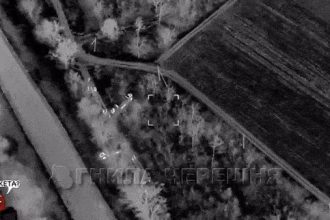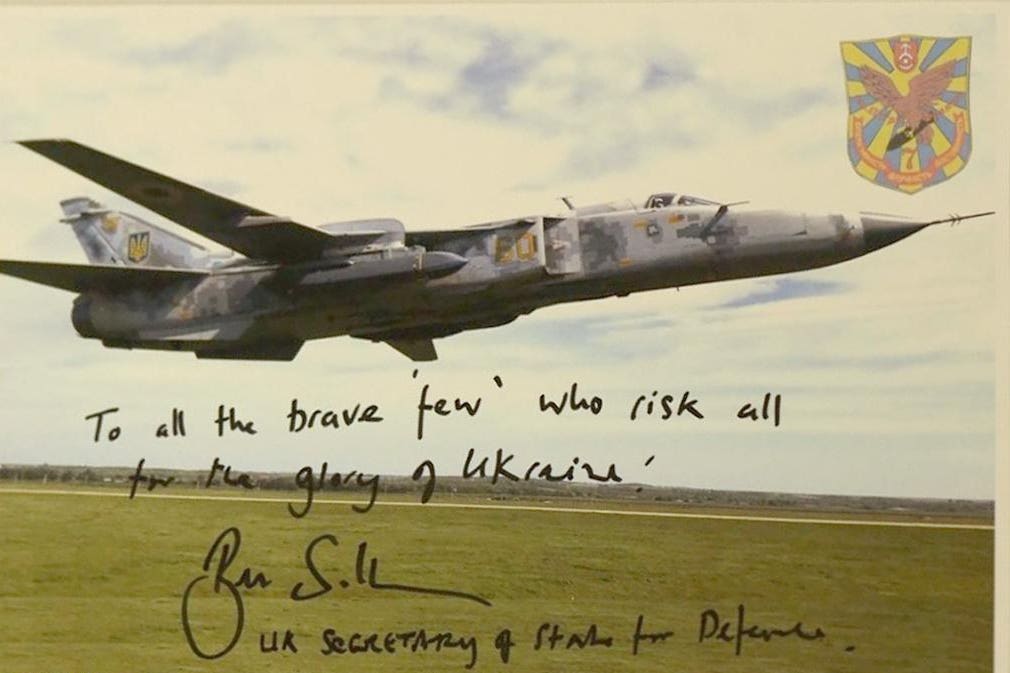The four-decade-old Sukhoi Su-24 bombers belonging to the Ukrainian air force’s 7th Tactical Aviation Brigade have, with NATO’s help, become deadly deep-strike systems.
Which is why the Russian air force is doing its best to destroy the brigade, which operates from an airfield in Starokostiantyniv in western Ukraine.
But the 7th Tactical Aviation Brigade has been fighting and surviving for 18 months. It has ways of avoiding Russian attacks.
The 7th Brigade had just a couple of dozen of the twin-engine, two-seat Su-24M bombers and Su-24MR reconnaissance planes when Russia widened its war on Ukraine on Feb. 24, 2022.
The initial Russian missile attacks on Ukrainian air bases, in the first hours of the wider invasion, hit very little of value. Tipped off by NATO intelligence, Ukrainian crews had evacuated with their planes to small outlying airfields or even roadway airstrips.
The 7th Brigade’s Su-24Ms quickly flew into battle, usually with loads of unguided gravity bombs. On Feb. 24, 2022, some of the supersonic bombers streaked low to drop sticks of bombs on Russian paratroopers fighting for a lodgment at Hostomel airport outside of Kyiv.
The first year of the wider war was hard on the 7th Brigade. The Russians destroyed no fewer than 17 Su-24s and killed dozens of aviators. But the Ukrainian air force managed to maintain the brigade’s front-line strength by recalling retired pilots and navigators and restoring some of the scores of derelict Su-24 airframes Ukraine held in storage.
The United Kingdom’s donation of stealthy Storm Shadow cruise missiles radically changed the 7th Brigade’s fortunes, starting this spring. British and Ukrainian technicians modified Su-24Ms and Su-24MRs to carry two Storm Shadows at a time.
The 1.5-ton, GPS-guided weapons travel as far as 155 miles. Suddenly the brigade’s crews didn’t have to fly over a heavily-defended target in order to attack it. They could launch attacks while flying in the relative safety of Ukrainian-controlled air space.
The 7th Brigade’s loss rate dropped, by a lot. The unit went from losing one or two bombers a month on average in 2022 to losing, well, almost none in 2023.
The Storm Shadows, and similar SCALP missiles that France donated to Ukraine, have proved highly accurate and very difficult for Russian air-defenses to intercept.
Missile-armed Su-24s have struck logistical nodes in Russian-occupied Ukraine as well as the Russian army’s vast repair depot for combat vehicles in occupied Crimea. And on or just before Aug. 6, the bombers dropped two of the four bridges connecting Crimea to Kherson Oblast in Russian-held southern Ukraine.
The 7th Brigade is doing the hard work of isolating Crimea, gradually setting the conditions for Ukrainian forces eventually to liberate the peninsula. And that’s made the brigade’s base, bombers and crews top targets of Russia’s own deep strikes.
Russian cruise missiles targeted Starokostiantyniv airfield on May 29 and again on July 26. And on Sunday, the Russians launched a massive barrage of 67 rockets, cruise missiles and one-way drones packed with explosives.
The 7th Tactical Aviation Brigade was the main target. Ukrainian air-defenses shot down 57 of the 67 incoming munitions. Ten got through but, just like happened back in February 2022, there was little of value for them to hit. Alerted by Ukrainian or allied intelligence, the brigade’s crews had flown their bombers away from Starokostiantyniv, to safety.
Expect the Su-24 crews to get back to work before too long, firing more cruise missiles at the vital infrastructure of Russia’s occupation.
Read the full article here





